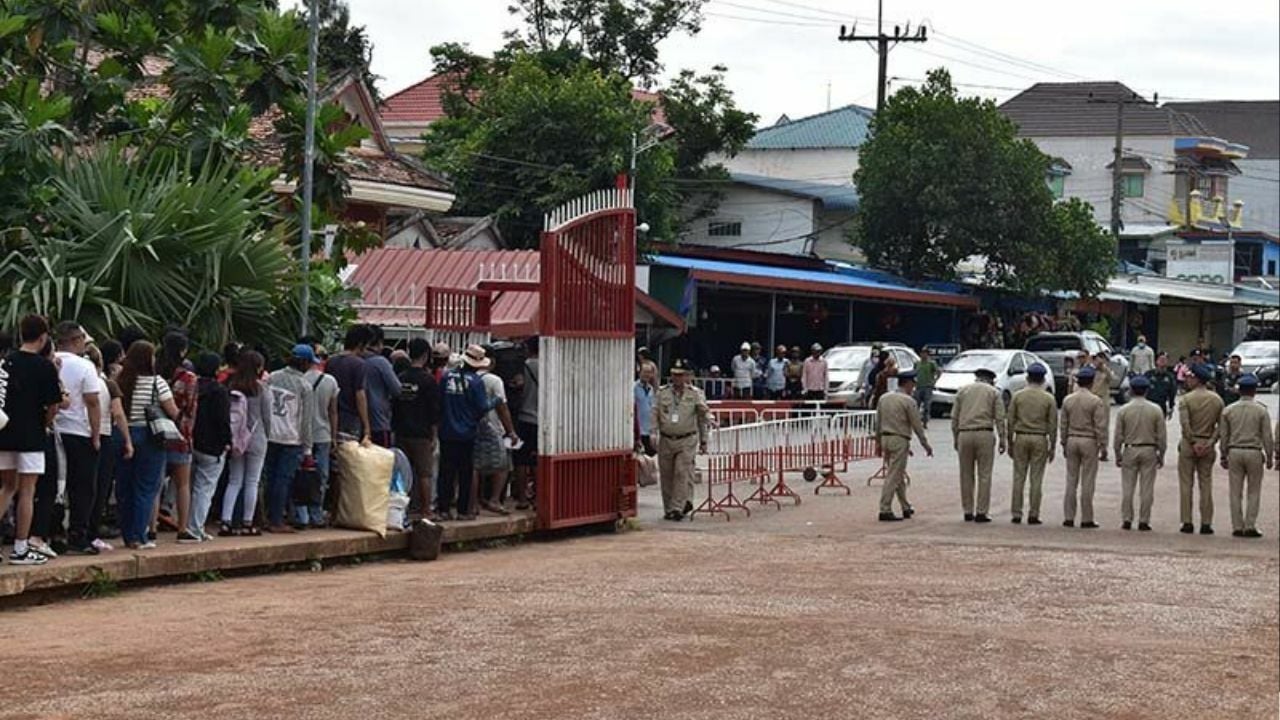

Police in Sa Kaeo are intensifying inspections at the Khao Din checkpoint to prevent illegal oil transportation to Cambodia, following Cambodia’s decision to halt oil imports from Thailand. Historically, oil has been transported by sea between the two countries, with the latest shipment recorded yesterday, June 23.
At the permanent border checkpoint in Ban Khao Din, Klong Hat district, Sa Kaeo province, the atmosphere reflects the Ministry of Commerce’s ban on importing cassava from Cambodia.
Despite this, Sa Kaeo province allows cassava importation at two specific points: the Khao Din permanent checkpoint, where only trucks with more than six wheels are permitted, and the Ta Phraya relaxed point, limited to trucks with six wheels or fewer. The eastern forces have restricted the number of trucks entering and exiting to 70 per day.
Truck convoys, including 18-wheelers from various companies, fill the parking area at the Baan Klong Luek permanent checkpoint as drivers engage with customs officers and shipping agents. They prepare to transport cassava from Cambodia, lining up for document checks starting from 9.30am.
Customs officers and Border Patrol Police 13 conduct thorough inspections, even of empty trucks. The process takes nearly two hours to clear all vehicles.
Customs officers at Ban Khao Din reveal that although the Ministry of Commerce has not issued an official written order to ban cassava imports, discussions on the topic continue. Thus, cassava imports from Cambodia remain permitted.

Once shipping documents are prepared, customs officers allow trucks to proceed to Cambodia. An urgent official ban could be implemented immediately if received.
Officials have received recent orders to tighten inspections of trucks and vehicles crossing the border to prevent oil smuggling following Cambodia’s oil and gas import ban from Thailand on June 22. Truck operators and drivers state there is no official checkpoint closure or cassava import ban.
If enforced, they would cease operations but could seek alternative employment. They emphasise the need for advance notice to avoid being stranded if a ban is suddenly imposed.
A truck driver expressed concern over potential sudden bans, fearing vehicles might be stranded if not informed in advance. He has driven agricultural product transport trucks for nearly 10 years, adapting to changing border situations as instructed.
At the Thai-Cambodian Friendship Bridge checkpoint (Baan Nong Ian–Stung Bot) in Aranyaprathet district, Sa Kaeo, there were no gas trucks waiting to cross following Cambodia’s recent announcement. Typically, approximately 10 gas trucks cross daily, heading to Phnom Penh.
In 2024, gas exports to Cambodia amounted to 579 million baht (US$7.6 million), and this year figures up to May show exports of 436 million baht (US$13.3 million), reported KhaoSod.
Currently, oil transportation between Thailand and Cambodia is mainly by sea, with the Thai-Cambodian Friendship Bridge checkpoint handling an average of 300 to 400 goods trucks daily.

The story Sa Kaeo combats oil smuggling to Cambodia as seen on Thaiger News.
